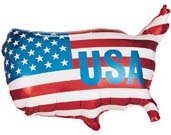After jail, millions of US ex-felons lose right to vote
 Washington When Kimberly Haven votes in her first-ever presidential election on November 4, she says it will be a gut- wrenching experience. She doesn't take her right to vote for granted, because it was snatched from her when she was convicted for a felony.
Washington When Kimberly Haven votes in her first-ever presidential election on November 4, she says it will be a gut- wrenching experience. She doesn't take her right to vote for granted, because it was snatched from her when she was convicted for a felony.
An estimated 5.3 million Americans a staggering one in 40 adults are not allowed to vote because of criminal convictions. This includes 2.1 million ex-offenders who have completed their sentence and are free. US state laws on disenfranchisement vary widely, but the issue has come under public scrutiny given the soaring nationwide rate of incarceration and the contested presidential election of 2000.
The election eight years ago was decided by 537 votes in Florida. At that time there were an estimated 960,000 ex-felons in the state, who had completed their sentence and did not have the right to vote, according to the Sentencing Project, a Washington-based advocacy group.
Florida's law was changed in 2007 under Governor Charlie Crist, restoring voting rights for those who had served non-violent felony convictions. Next week, an estimated
115,000 ex-felons will be eligible to vote.
Haven says July 2, 2007 is her independence day because that's when she registered to vote for the first time after coming home from prison six years before.
In April 2007, Maryland Governor Martin O'Malley signed legislation ending the state's lifetime voting ban and giving back voting rights to more than 50,000 residents. Haven was the state's first newly re-enfranchised former felon to exercise her right to vote in civic polls.
I didn't realise the importance or the power of the right to vote until it was taken away from me," Haven, 47, told Deutsche Presse- Agentur dpa, adding that she hadn't voted before. It's going to be a very emotional experience for me next week. I know I will cry. It's surreal because I know how hard-fought this has been for me."
Haven has struggled to regain what she calls not just a privilege, but a basic right for thousands like her who have paid their debt to society. She is now the executive director of Justice Maryland, an advocacy group that has a voter re-enfranchisement campaign - Maryland, Got Democracy.
The right to vote has nothing to do with the criminal justice system. It has to do with the power of democracy and civic engagement and participation," she said.
Currently, 48 states prohibit prisoners from voting while incarcerated for a felony offence. Only two states Maine and Vermont permit inmates to vote.
Nobody in the rest of the world has policies like us. We are considered a beacon of democracy, and yet we have the most restrictive voting rights," Ryan S King, policy analyst at the Sentencing Project, told dpa.
The US incarcerates more than 2 million people, a rate that is 5-8 times more than in other developed nations. Criminal justice experts say that 1.4 million black men, or 13 per cent, are disenfranchised a rate that is seven times the national average.
The American Civil Liberties Union (ACLU) says the US is out of step with the rest of the world, as many democracies allow inmates to vote, and it is very rare for anyone who is not in prison to lose their right to vote.
But disenfranchisement is only part of the story. In this election, several hundred thousand ex-felons could lose their new" vote even in states where they can vote, because election officials are poorly informed of their state's felony disenfranchisement policies, according to New York University Law School's Brennan Centre for Justice.
Since 1997, at least 16 states including battleground states such as Pennsylvania have reformed their felon voting laws, but there is little coordination between election offices and the criminal justice system, which could cause confusion on election day.
Andres Idarraga says that voting is the most significant form of political expression in a democracy. In 1998, at age 20, he was convicted as a cocaine dealer. He had never cast a vote before then.
When he was released in 2004, he discovered that under Rhode Island law he would not be eligible to vote until age 58. He joined the state's Right to Vote campaign and helped organize residents to approve a referendum that restored voting rights to released convicts.
Determined to turn his life around, Idarraga graduated from Brown University with degrees in economics and literature, and started at Yale Law School this fall. He voted for the first time in the primaries and was excited about exercising his franchise in the presidential elections.
Felony disenfranchisement is a controversial issue and hasn't featured in the presidential campaigns even though they could benefit from the new voter pool because neither side wants to appear to be soft on crime, activists say. (dpa)